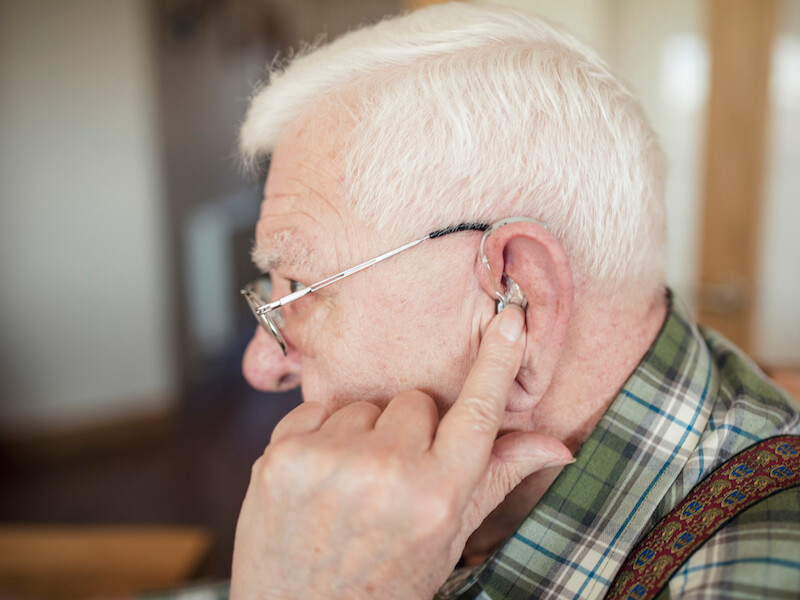
Do you feel like your hearing aid batteries are not keeping a charge as long as they should? Here are some surprising reasons that might occur. What is the average period of time that your hearing aid batteries should stay charged? Between 3 to 7 days is typical. That’s a very wide range. Actually, it’s so wide that it probably can’t help you predict what should be taking place with your hearing aid. Things might suddenly get quiet when you’re trying to hear the cashier at the grocery store after 4 days of battery power. Or it’s day 5 and you’re having a call with friends when all of a sudden you find yourself feeling really alone because you can no longer follow the conversation. Occasionally the batteries don’t even make 3 days. Like when you’re watching TV on day 2 and all of a sudden you can’t hear the show your that’s on. It’s more than a little inconvenient. You simply can’t tell how much battery power you have left in your hearing aids and it’s causing you to miss out on life. If your hearing aid batteries are dying too fast, there are a few likely causes.
A Battery Can be Depleted by Moisture
There aren’t many species that produce moisture through their skin but humans do. It’s a cooling method. It’s the body’s way of purging the blood of toxins and sodium. On top of this, you might live in a rainy or humid climate where things are even more moist. The air vent in your hearing aid can get clogged by this added moisture and it will be less effective. It can even drain the battery directly by interacting with the chemicals which create electricity. You can prevent moisture-related battery drainage with these measures:
- Moist conditions, like the kitchen or bathroom are not a good place to keep your hearing aids
- if your storing them for a few days or more, take the batteries out
- Obtain a dehumidifier for your hearing aids
- Open the battery door before storing the hearing aids
Batteries Can be Drained by Advanced Hearing Aid Functions
Modern digital hearing aids help people hear so much better than ones that came out just ten years ago. But these extra features can cause batteries to drain faster if you’re not keeping an eye on them. Don’t stop using your favorite features. But be aware that if you stream music for hours from your smartphone to your hearing aids, you’ll have to replace the battery sooner. Bluetooth, multichannel, tinnitus relief, noise canceling — all of these additional functions can drain your battery.
Batteries Can be Affected by Altitude Changes
Your batteries can be drained if you go from low to high altitudes specifically if they are already low on juice. When flying, skiing or climbing always takes some extra batteries.
Maybe The Batteries Aren’t Really Low
Some hearing aids let you know when the battery is low. These alerts are, under normal circumstances, a “heads up”. It doesn’t mean you have a depleted battery. Moreover, sometimes an environmental change in altitude or humidity temporarily causes the charge to drop and the low battery alert gets activated. In order to stop the alarm, remove the batteries, and then put them back in. You might be able to get several more hours or even days of battery life.
Improper Handling of Batteries
Wait until you’re about to use your hearing aid to pull the tab from the battery. Always wash your hands before touching your hearing aids or batteries to avoid getting dirt or hand oil on them. Never freeze hearing aid batteries. This technique may increase the life of some types of battery but it doesn’t work with hearing aid batteries. Hearing aid batteries may lose battery power more quickly if you make these basic handling errors.
Getting a Year’s Supply of Batteries Isn’t a Very Good Idea
When you can afford to do it, purchasing in bulk can be a smart plan. But as you come to the end of the pack, the last several batteries probably won’t be at full power. Unless you don’t mind wasting a few, try to stay with a six month supply.
Buying Hearing Aid Batteries Online
This isn’t a general criticism of purchasing stuff on the web. There are some pretty great deals out in cyberspace. But some batteries that can be found on the internet are being sold by less honest individuals and are close to their expiration date. They might even be past their expiration date. So you need to be careful.
Both alkaline (AA, AAA, etc.) and zinc hearing aid batteries have an expiration date. If you were going to buy milk, you would look at the expiration date. You should use the same amount of caution with batteries. Be sure that the date is well in the future so that you can get the most use out of the pack. If the website doesn’t state an expiration date, send the online vendor a message, or purchase batteries from us. Only buy batteries from trusted sources.
Now You Can Get Rechargeable Hearing Aids
There are a number of reasons that hearing batteries could drain quickly. But you can get more life out of your batteries by taking some precautions. If you’re looking to buy a new set of hearing aids, you might consider a rechargeable model. If you charge them at night, you get a full day of hearing the next day. The rechargeable batteries only have to be replaced every few years.